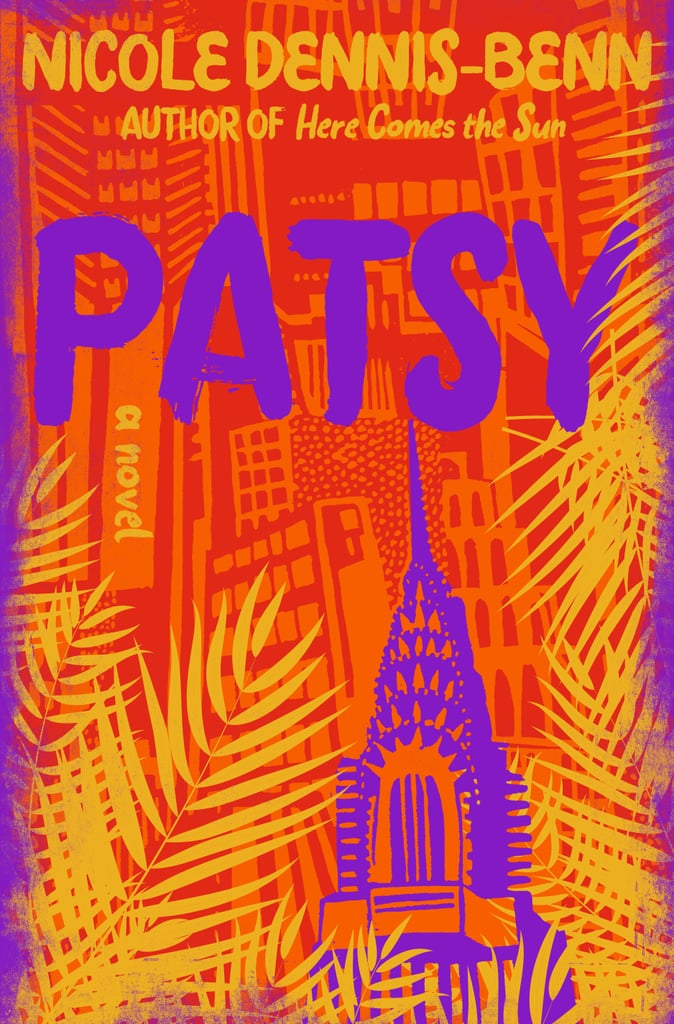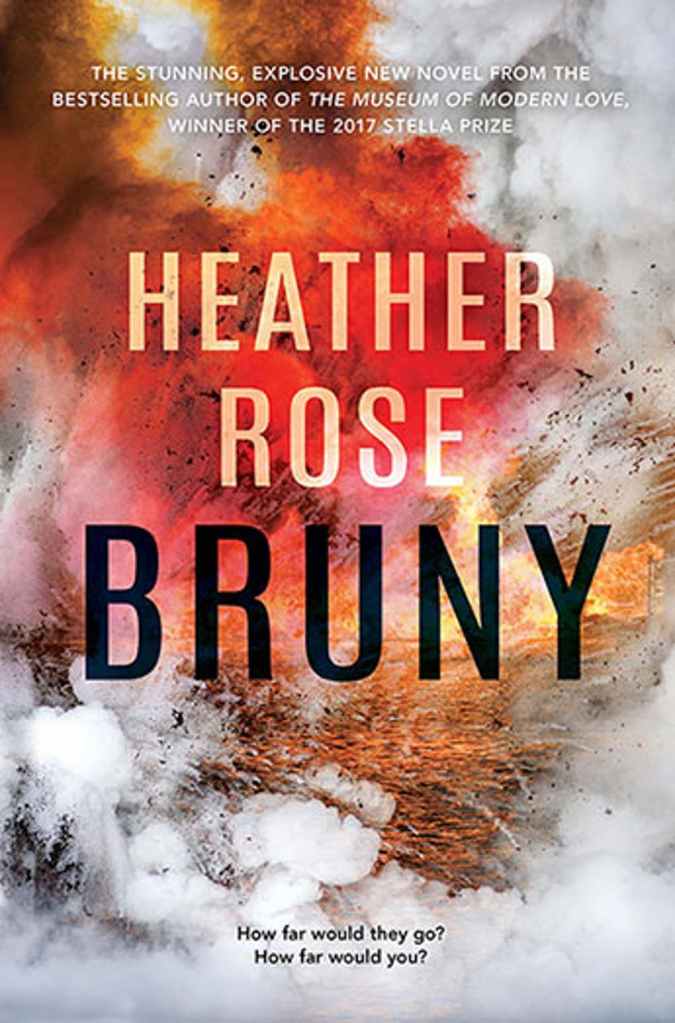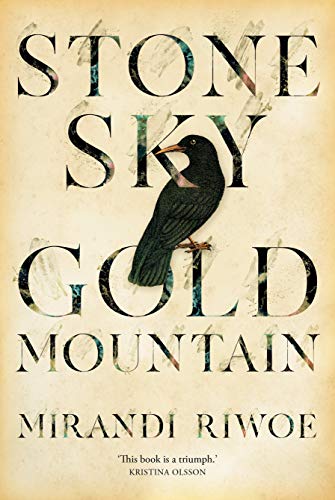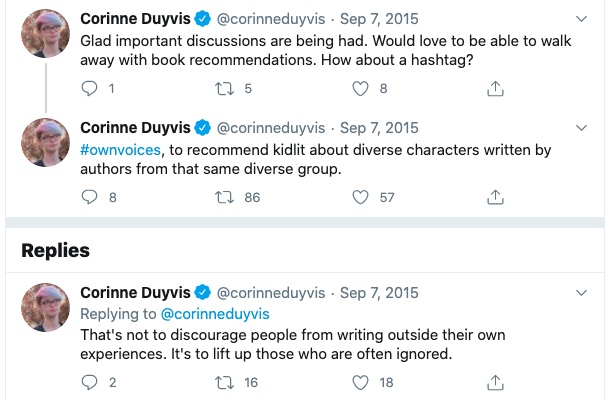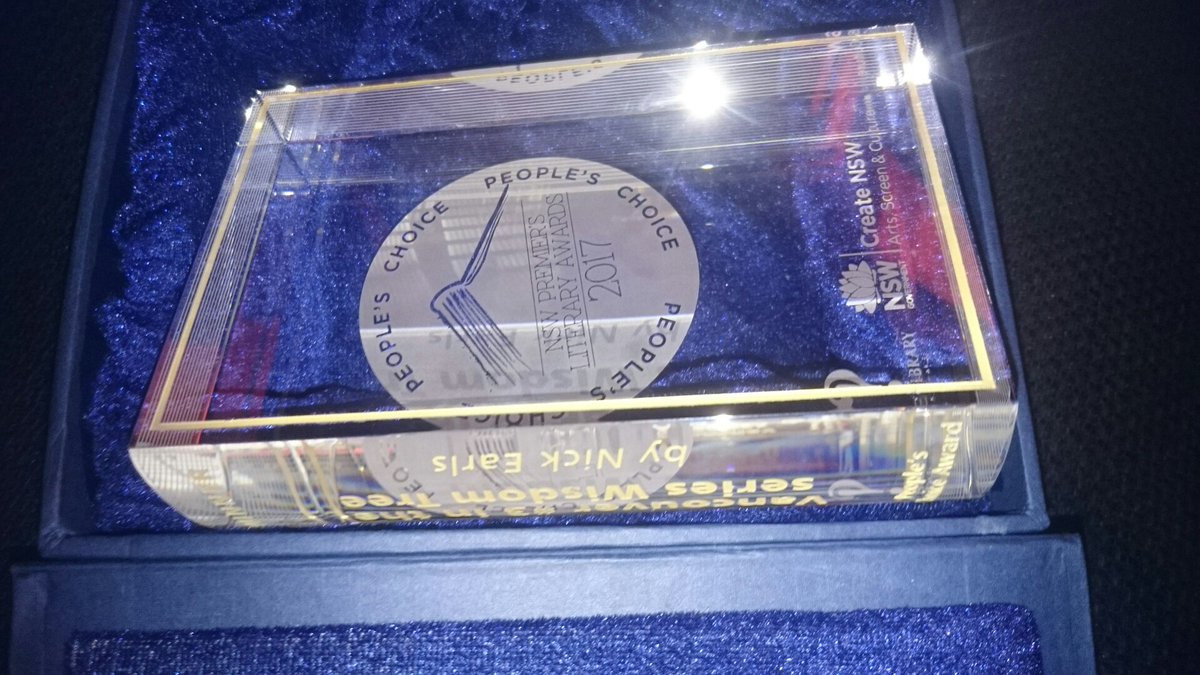The next five podcasts from the 2020 Sydney Writers’ Festival are all about fiction. My guess is I would have attended one out of five in a non-virtual festival, but my completist compulsion kicked in. The one I would have attended, the 50th session, is about the first book in the festival that I’ve actually read!
In the intro to the fifth session in this blog post, Michael Williams introduces himself without fanfare as the new Artistic Director of the Sydney Writers’ Festival. I for one welcome our new Melbourne overlord.
Alex Dyson: When It Drops 16 September

This conversation about Alex Dyson’s When It Drops is part of the festival’s YA podcast series. Will Kostakis, YA author himself, does a brilliant job, and Dyson’s experience as a morning radio presenter ensures that teh entertainment quotient is high. We don’t get to the content of the book until the 20 minute mark: before that there’s a lot of very funny chat about the difference between doing a radio show and writing a novel, about the horror of discovering a typo in a freshly published book, about tiny bits of celebrity gossip, about awkward love poetry written by both these men when they were teenagers.
Even then, the conversation doesn’t get stuck in laborious detail about the book’s characters and plot. We learn snippets of Alex Dyson’s life story, and then there’s non-spoilerish discussion of how those snippets relate to the book. At the end, it turns out that Alex Dyson ran for federal parliament last year, and he has some very smart things to say about that.
Nicole Dennis-Benn: Patsy 23 September
Jamaican-born Nicole Dennis-Benn now calls Brooklyn home. Her novel Patsy tells the story of a Jamaican woman who leaves her husband and five-year-old daughter for a new life where she can choose how to live, in the USA. In this conversation with Australian journalist and filmmaker Santilla Chingaipe, she lays out some of the issues the novel is responding to. At its heart there’s the question: ‘What do we lose or gain when we choose ourselves as women – especially as women – in society.’
It’s great to hear a clear voice speak about Jamaican society, including aspects of class, colonialism, the importance accorded skin colour, sexism; and about Jamaican Americans in relation to African Americans and others.
My two favourite moments in the conversation are being read to from the novel (always a pleasure, and in this case reassuringly concrete in the context of a conversation bristling with terms like ‘intergenerational trauma’), and Nicole Dennis-Benn’s response to the question, ‘How did Patsy find you?’ The novel started life as a series of letters from the character Patsy to her mother back in Jamaica. Then after a whole year, another voice turned up, a girl navigating a life in Jamaica without her mother:
I realised Patsy’s saying all these things to her mother in these letters, but she’s leaving out a lot of things. She’s leaving out how she’s really doing in America – you know, she was in that one room already in that first draft. But in addition to that, Patsy wasn’t telling me – the author – something: that she left a whole five-year-old daughter behind. … I kind of refused to believe that Patsy would actually do that, because I wanted to like Patsy, I judged Patsy initially when I found that out. But I continued the Dear Mama letters and then, draft two, I trashed that. I was like, ‘You know, Patsy, you gotta tell me the truth.’ And that’s what happened. She ended up revealing a lot more.
Heather Rose: Bruny 30 September
Heather Rose’s novel Bruny, the subject of this conversation, has disappointed friends of mine who loved her earlier novel, The Museum of Modern Love. Worse, one of the more forthright members of my Book Group virtually recoiled in horror when someone mentioned it. So I was tempted to bypass this session. I resisted the temptation.
It’s a conversation between Heather Rose and Suzanne Leal, lawyer, novelist and literary award judge. Perhaps there’s a bit too much information about the novel for anyone intending to read it, but this session managed to shift me from ‘almost certainly not’ to ‘maybe, or I might wait for the movie’. It’s a novel set in the near future when an erratic right-wing president of the USA is midway through a second term and the Chinese Communist Party is becoming more aggressively involved in Australian public life.
There’s some wonderful talk about Heather Rose’s creative process. The main character of Bruny, whom she imagines as played by Charlize Theron, feels to her like an imaginary friend who says and does things she would never dare do herself.A Vietnamese character in a previous book just wouldn’t speak to her until she had read a huge amount about the Vietnam War – and when that character does speak in the novel about her backstory, no reader could guess that the couple of sentences she speaks required so much arduous research.
Favel Parrett: There Was Still Love 7 October
I’ve read Favel Parrett’s earlier books, Past the Shallows (2011) and When the Night Comes (2014). A Czech friend said every Australian should read the subject of this conversation between the author and radio presenter Elizabeth McCarthy, There was Still Love. It’s on my TBR shelf. But I wasn’t keen on the podcast because I’ve heard Favel talk about the book at length on at least one other program, and – quite apart from actual spoilers – too much talk in advance can spoil the reading experience
In the event the conversation wasn’t spoilerish in any sense. They talked about the seeds of the book in Favel’s relationship with her Czech grandparents; her research, especially in her discovery of a cousin who had lived in Prague under Communism – which is the book’s setting, but also in her reading the history of Czechoslovakia and the Czech Republic under first the Nazis and then the Communists; the process of writing – this is her third novel, and the first that she has played close to her chest until she was confident she had reworked it enough that it didn’t need much rewriting; the book’s reception, including the top editor of Hachette who called to say she loved the manuscript, which Favel half expected no one would publish, and the Czech cousin who first wrote angrily that she had got a detail about food terribly wrong, and then wrote to say that he had cried for days. I’m looking forward to the book.
Mirandi Riwoe: Stone Sky Gold Mountain 14 October
I’ve read Mirandi Riwoe’s Stone Sky Gold Mountain, loved it and blogged about it in June (here’s a link).
Here Mirandi Riwoe is in conversation with Rashida Murphy, who introduces herself as a first-generation immigrant woman from India, who is also a writer of novels, short stories, essay and poetry.
Ms Murphy starts out with outrage. Evidently it’s a word that Riwoe used when talking about her novella The Fish Girl, which is a retelling of a Somerset Maugham from the point of view of an Asian woman who appears in the original without a name or much sense of her as a full human being. The novella sounds very interesting, independent of its relationship to Maugham. (I confess to not having read any Maugham stories, but to have been put off by the way he exoticises the tropics in a quote I’ve read somewhere.) Then the conversation moves to the question of some white people’s anger that this year’s Booker Prize didn’t go to Hilary Mantel. Riwoe politely and tactfully resists giving airtime to that point of view: she says that Mantel herself, while understandably disappointed, was gracious about the matter and we all got to know about a swath of writers not from the white mainstream.
The discussion of Stone Sky Gold Mountain is interesting, with an animating tension between the participants, Murphy again seeming to want Riwoe to rebut some (white?) critics while Riwoe seems happy not to define her work in opposition to someone else’s view. She talks interestingly about the book’s ghost elements, about how her research into the North Queensland goldfields transformed the book that she had thought she was writing from a cross-cultural love story into something much more interesting, about books she loved as a younger person. She mentions that Rashida has reviewed Stone Sky Gold Mountain, describing as ‘unflinching’ her accounts of violence against Chinese on the goldfields, and violence against the First Nations people, in which Chinese miners were complicit. She laughs, and says that she flinched a lot.
I was already a fan of Mirandi Riwoe as a writer. I’m relieved to say that she’s an excellent conversationalist as well.


